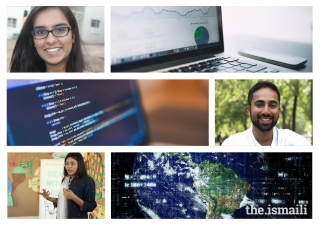Digital Awareness
It’s become an oft repeated cliché that we live in times of exponential change, driven by disruptive technologies, shifting global politics, changing human behaviour, and newly emerging social norms. And yet, as we enter the era of the fourth industrial revolution, we may be witnessing the greatest amount of change ever seen in a single human lifetime.
With the growth of artificial intelligence, machine learning, big data, and social media, young Ismailis around the world are preparing themselves to be at the forefront of newly emerging fields of endeavour.
Due to advances in technology, the landscape of work and jobs has changed significantly in the last 30 years. Some industries have progressed rapidly, while others have declined, which has shifted and disrupted standards of living and career aspirations. As the relationship between virtual and real becomes ever more blurred, how can we prepare for the next 30 years?
In October 2015, Essena O’Neill, a popular Instagram Influencer, deleted 2000 pictures from her profile in what appeared to be a crisis of conscience. Having counted over half a million followers, and living many young peoples’ dream life, she eventually came to realise that the so-called ‘real world’ was a better place to spend her time.
Earlier this month, a vulnerability in the popular messaging service WhatsApp was discovered, which allowed hackers to install spyware though a voice call. This illicit software was capable of accessing calls, texts, and other data; even activating the phone’s microphone and camera. WhatsApp’s owner, Facebook, released an update in response, but it was already too late for some.
In today’s age, children are born into the world and in many cases the first thing they are exposed to by their parents is a smartphone to capture and share their newborn images. This is often an indication of things to come, where electronic devices become a consistent part of their lives. The presence of such devices mean that children are going online at a younger age, but what implications could this have?
It is estimated that at the end of 2018, 51.2 per cent of the global population, or 3.9 billion people, were using the Internet. While the Internet has brought about many positive changes, there have also been some undesirable effects of its growth and increased usage.
The digital age has changed our lives in many parts of the world, inextricably tethering them to the Internet for the simplest to the most sophisticated of tasks. In the first of a new series of articles on how to use digital media safely, Altaf Jiwa outlines the role that the Internet and social media have come to play in our daily lives.









